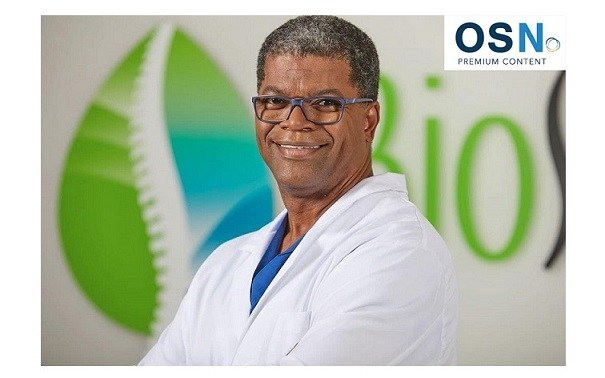As the saying goes, “With great power comes great responsibility.” And with spine surgery on the menu of an increasing number of ambulatory surgery centers (ASCs), the chance for physicians to participate in this new wave is tempting.
But prudence is advised, says Reginald Davis, M.D., a neurosurgeon with The BioSpine Institute in Tampa, Florida, who has some experience with spine ASCs.
“It is undeniable that physicians have experienced a substantial downward drift in their ability to influence patient care,” says Dr. Davis, a former assistant professor of neurosurgery at Johns Hopkins in Baltimore. “While the nucleus of medicine used to be comprised of the physician and the patient, other parties have now moved in, and the voice of the physician has been crowded out.”
Which is one reason why surgeons might find a spine ASC alluring.
“There is a mounting interest in taking spine to the ASC,” states Dr. Davis, “and because this trend will likely continue, we must approach it in a measured, thoughtful manner.”
“The advantage of spine surgery in an ASC is that the patient benefits from a system that is very unique and highly focused on their problem. The experience is deeply personalized for individual patients, the outcomes can be superior, the recovery time is less, and many procedures cost less than in a hospital.”
But the major drawback is one that should give any surgeon pause.
Dr. Davis: “In the event that things go awry, you do not have the backup of hospital resources at your disposal. Unusual circumstances can occur…a certain instrument is needed or there is a complication. Things are particularly serious if the patient experiences a cardiac event or requires a transfer.”
Lesson #1:
And that is why, according to Dr. Davis, the key to success in a spine ASC is patient selection. “You want the healthiest patients with a specific pathology and no comorbidities. You are essentially cherry picking with your eye on the bullseye…and the further you stray from bullseye the closer you are to catastrophe.”
“Comorbidities such as cardiac, pulmonary, or renal issues can lead to anesthesia problems. Intraoperative cardiology issues in particular will result in the immediate cessation of surgery and transfer to a hospital. If you have an otherwise healthy patient who is a smoker with elevated blood pressure you are on a slippery slope. A higher body mass index (BMI) is notorious for creating anesthesia problems, and the more difficult the surgery the longer it takes and the more likely you are to have complications.”
“Let’s say at the preop weigh-in a patient’s BMI is 40.8, but on the day of surgery it has risen to 42. It may not represent a major issue—and things may go well—or not. It is important to deconstruct what goes into patient selection. Examine the medical comorbidities by sorting through every major system, which is an overwhelming algorithm. For the most part it is always best not to make your selection on a case-by-case basis. It is better to anticipate every variable and have a hard stop for each one. And forget about exceptions…the ones that didn’t go well were always the exceptions.”
Medicine…walking a tightrope.
“In any medical arena there is a pull and push between providing the highest level of care and delivering the most economical care. This warring can turn internal, in essence, and put the physician is a difficult situation. It may be tempting to cut corners and focus more on cost, but then the quality of care may be compromised. It is a balancing act that is replayed over and over in a surgeon’s day-to-day life.”
“Attempting to complete a procedure hastily or doing anything that would jeopardize the best outcomes can turn into a cascade of negative events. For example, if you are doing a lumbar fusion and you want good decompression then you must be on target with the alignment, stabilization, and fusion. But good decompression takes time. You have to prepare the bed, and use good bone or Infuse. If the thought, ‘I will use the cheapest demineralized bone matrix I have, ’ then think again.’
“Doctors are trained in traditional settings such as universities where you do whatever it takes—for as long as it takes—to reach the zenith of patient care. Frankly, that is how doctors are programmed. For the longest time we were the patient’s best advocates and compromising on quality was unheard of. Now that the difference comes out of the surgeon’s pocket, he or she is routinely placed in comprising positions as far as conflicts of interest. Performing spine surgeries in an ASC requires an ethical surgeon with strong integrity.”
“It’s easy to give lip service to being patient-centric, but if your hospital says, ‘You will use this screw, or you will not be allowed to operate here’ then the patient will pay out of pocket…and so will you.”
No standing still…
“We are all either headed toward evolution or extinction, meaning that our past successes are almost irrelevant. The failure to evolve or to have perspicacious situational awareness is detrimental to physician as the patient, industry, and hospital landscapes are always on the move.”
“There is no formal training for a surgeon who commences work at a spine ASC…it’s basically on-the-job training. Until we have a journal and/or meeting where the business, medical, and legislative aspects of spine ASCs can be addressed, then this remains an area where interested parties should make their decision after thorough vetting and careful consideration.”



